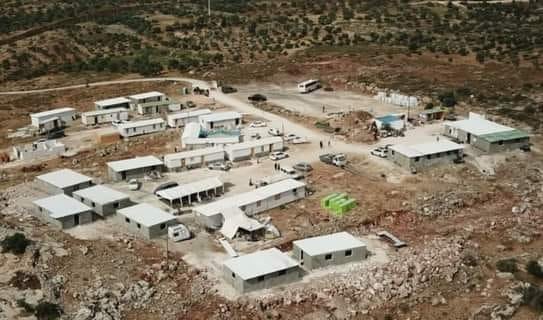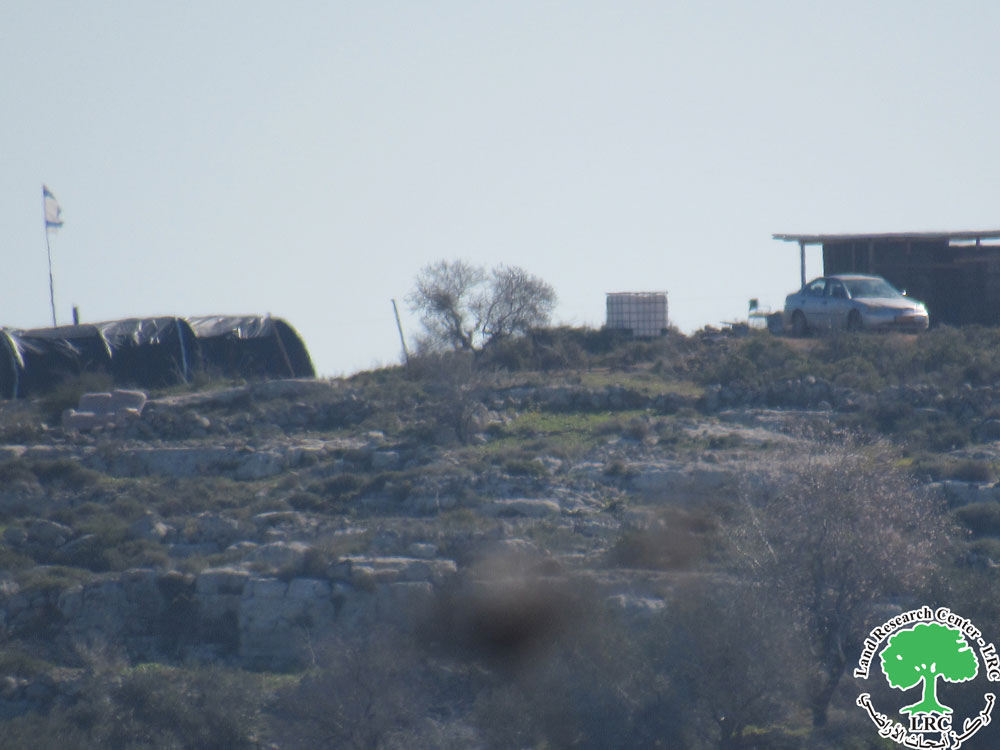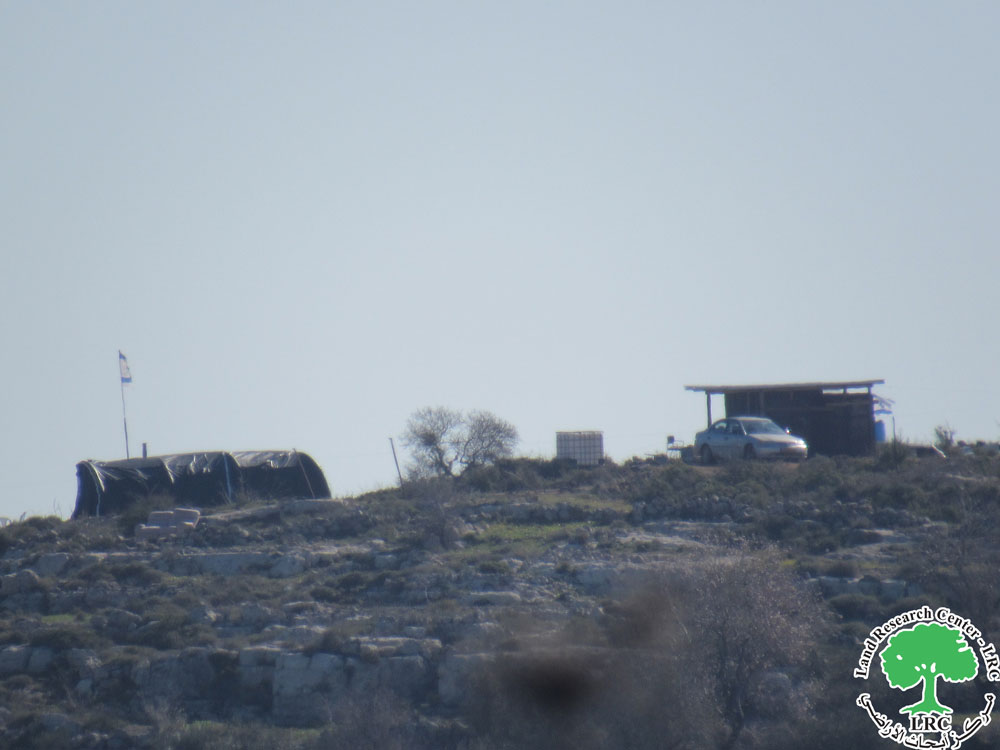Extension of the "Avitar" Outpost: Settlers Establish a New Grazing Outpost on the Lands of Beita, South of Nablus
- Violation: Establishment of a new grazing outpost.
- Location: Beita, south of Nablus.
- Date of Violation: February 2025.
- Perpetrators: A group of settlers.
- Affected Party: The residents of Beita, especially farmers.
Description:
At the beginning of February 2025, a group of settlers established a new grazing outpost on the lands of Beita, south of Nablus, in an area known as "Al-Haraiq," which consists of grazing lands belonging to the town of Beita.
According to direct field research conducted at the site of the violation, the settlers deliberately set up three agricultural units consisting of tents and makeshift shelters, in addition to a water tank, on a piece of grazing land owned by the Al-Aqtesh family from Beita.
Practically, this outpost serves as an extension of the "Avitar" settlement, which was established in May 2021 on the lands of Beita, specifically in the Jabal Sobeih area. The new outpost is located just 200 meters from the settlement, paving the way for further territorial expansion, seizing vast agricultural lands, and completely blocking the eastern part of the town from farmers. Ultimately, this leads to the transformation of the entire area into a disaster zone due to the Israeli occupation.
Farmer Samir Mohammed Al-Aqtesh stated to the LRC researcher:
"The presence of this outpost in this location has a serious impact on the residents of the area, especially the village of Za'tara, which is directly connected to the town of Beita. The outpost is located just 500 meters east of the village. Moreover, the lands surrounding the outpost are agricultural, planted with ancient and productive olive trees, which will inevitably fall under the control of the settlers in one way or another. There are at least 200 dunams of land around the new outpost that are cultivated with productive olive trees."
A few days before the establishment of the outpost, the field research team documented settlers carrying out extensive land leveling and constructing a colonial road west of the town, on the lands of Huwwara, specifically in the Za’tara area. This was a preparatory step toward establishing a new colonial outpost in the region. To view the report on the land leveling activities, click here.
The town of Beita has been a continuous target of the occupation, suffering from the Israeli control over key and sensitive areas of its land, such as Jabal Sobeih, where an Israeli settlement was established. This has paved the way for the full-scale Judaization of the entire area.
Beita Town
Beita is located south of the city of Nablus, approximately 14 kilometers from the city. According to data from the Beita Municipality, the town's total area is 17,622 dunams, of which 1,711 dunams fall within Area C under the Oslo Accords, while the remaining areas are classified as Area B. The town's structural plan covers an area of 3,693 dunams. According to 2015 statistics, the total population of Beita was 10,859 residents.
Land Confiscation Violates International Laws
What settlers are doing in the occupied Palestinian territories—confiscating Palestinian lands, establishing outposts, or expanding settlements on them—constitutes a violation of the rights of the Palestinian people and their lands, as well as a breach of international laws and norms. Below are key provisions from international laws and treaties that prohibit Israeli settlement in Palestinian territories and protect civil and public rights and properties in the occupied lands, along with relevant United Nations resolutions.
Lahai Convention / 1907
- Article 46: The occupying state is prohibited from confiscating private property.
- Article 55: The occupying state acts as an administrator of the land in the occupied territory and must treat the property of the occupied country as private property.
Fourth Geneva Convention / 1949
- Article 49: The occupying power is not allowed to transfer its own citizens into the territories it occupies or take any measures that would alter the demographic composition of those territories.
- Article 53: The occupying forces are prohibited from destroying personal or collective property, whether belonging to individuals, the state, or any authority in the occupied country.
- Article 147: The destruction and seizure of property on a large scale, when not justified by military necessity and carried out unlawfully and wantonly, is considered a grave breach.
Source: GIS Unit – LRC.
مشروع: حماية الحقوق البيئية الفلسطينية في مناطق "ج" SPERAC IV - FCDO
Disclaimer: The views and opinions expressed in this report are those of Land Research Center and do not necessarily reflect the views or positions of the project donor; the Norwegian Refugee Council.
إخلاء المسؤولية: الآراء ووجهات النظر الواردة في هذا التقرير هي آراء ووجهات نظر مركز أبحاث الأراضي ولا تعكس بالضرورة وجهات نظر أو مواقف الجهة المانحة للمشروع؛ المجلس النرويجي. للاجئين



